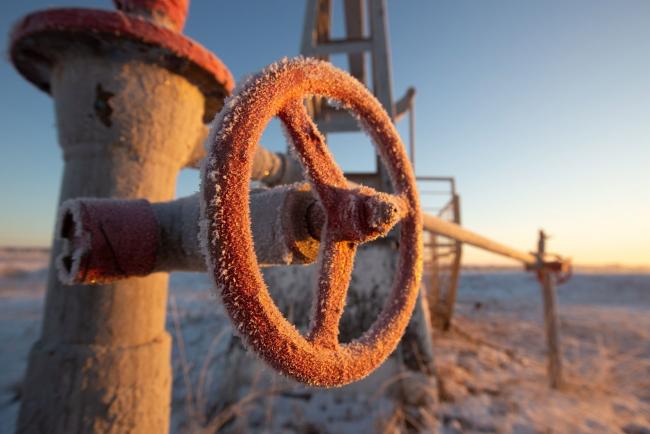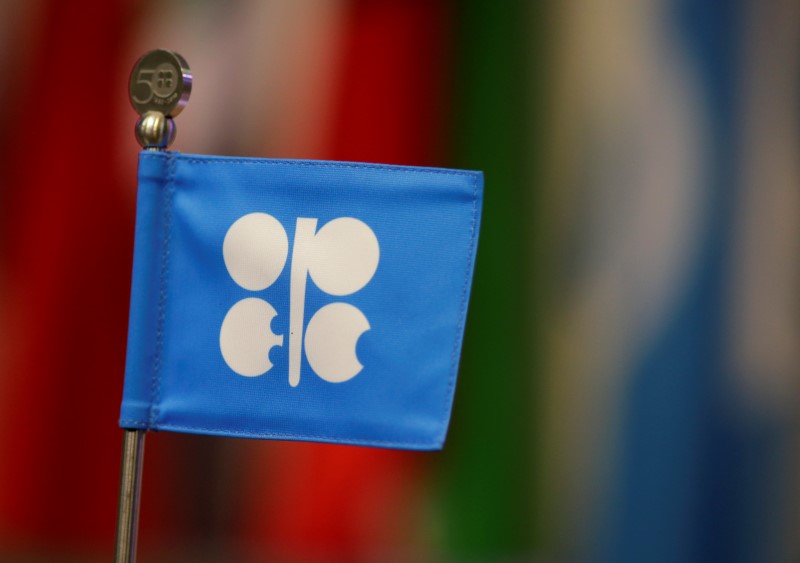(Bloomberg) -- OPEC and its allies agreed to make another modest output increase in March, sticking to their plan even as the failure of several members to deliver the scheduled monthly supply hikes stokes a rally in crude prices.
After a brief meeting on Wednesday, the 23-nation coalition rubber-stamped the nominal revival of 400,000 barrels a day for March, delegates said, asking not to be named because the information isn’t yet public. The alliance has has made identical pledges in previous months, but a Bloomberg survey showed that the Organization of Petroleum Exporting Countries barely managed to increase supplies in January due to issues ranging from under-investment to militia unrest.
Oil prices soared to a seven-year high above $90 a barrel last month, stirring expectations of a return to triple-digits, as supplies from OPEC+ and elsewhere failed to keep up with the vigorous recovery in demand from the pandemic. The rally is whipping up a wave of inflation that’s frustrating central banks and inflicting a cost-of-living crisis on millions.
Widespread difficulties in restoring supplies increasingly place the burden on the group’s Gulf nations: Saudi Arabia, the United Arab Emirates, Iraq and Kuwait. That’s leaving traders anxious over the spare capacity available to cover any disruptions, whether deeper losses in Libya or another attack like last month’s drone strike in Abu Dhabi.
“If prices continue their precipitous rise, we see a path to Saudi Arabia reprising the regulator role and ramping up output,” said Helima Croft, chief commodities strategist at RBC Capital Markets. “Of course the question is whether this would require a White House call.”
West Texas Intermediate crude futures rose 0.9% to $89.01 a barrel as of 7:57 a.m. in New York.
Production Woes
OPEC’s 13 members increased production by only 50,000 barrels a day in January as slight gains across the group were wiped out by a 140,000 barrel-a-day decline in Libya, according to the Bloomberg survey. The North African nation was stricken with a blockade of its western fields by militias, forcing the shutdown of its biggest reservoir, Sharara.
The 10 OPEC nations engaged in managing supplies increased by 160,000 barrels a day, about two-thirds of their targeted amount. One bright spot was Nigeria, where production rose by 100,000 barrels a day as the key Forcados export system returned to normal operating levels.
The figures are based on ship-tracking data, information from officials and estimates from consultants including Rystad Energy AS and JBC Energy GmbH.
Russian oil producers pumped 46.53 million tons of crude and condensate in January, according to preliminary data from the Energy Ministry’s CDU-TEK unit. That could convert to 10.05 million barrels a day, or 50,000 below its quota for the month.
The full 23-nation OPEC+ is cutting far more than required, with a compliance rate of 122% in December, according to data presented to an internal committee on Tuesday.
(Updates with analyst comment in fifth paragraph.)
©2022 Bloomberg L.P.

